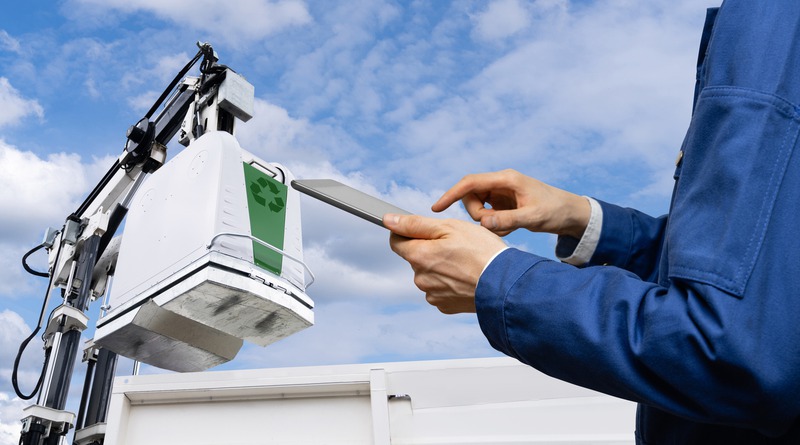Sustainable waste management has become a pressing issue for individuals and communities striving to reduce their environmental footprint. The overflowing trash bins and growing landfills make it clear that there’s an urgent need to adopt more sustainable practices. This article explores practical strategies that not only address these pain points but also promote a greener, cleaner future. By focusing on sustainable waste management practices, communities can work together to create effective solutions that are easy to implement.
How to Implement Sustainable Waste Management Practices
Effective waste management begins with a commitment to reducing the amount of waste produced. This approach involves embracing practices that limit, reuse, and recycle materials more efficiently:
-
Reduce Waste at Source: Choose products with minimal packaging, and opt for reusable bags, bottles, and containers. Buying in bulk can also cut down on packaging waste.
-
Reuse Whenever Possible: Before discarding items, consider their potential for reuse. Items like glass jars, plastic containers, and old garments can be repurposed creatively.
-
Recycle Smartly: Proper recycling involves more than just tossing items in the blue bin. Ensure that recyclables are clean, dry, and sorted according to local recycling guidelines.
-
Compost Organic Waste: Composting transforms organic waste into valuable nutrient-rich soil, reducing the strain on landfills and enriching garden spaces.
Leveraging Technological Solutions
Technology offers innovative solutions to streamline waste management processes and enhance efficiency. Smart bins equipped with sensors can monitor waste levels, helping municipal services optimize collection routes and reduce fuel consumption. Furthermore, mobile apps and online platforms can raise awareness and educate communities about proper waste disposal and recycling practices.
By leveraging technology, waste management becomes not only cost-effective but also environmentally friendly, reducing the overall carbon footprint of waste management activities.
Community Engagement and Participation
Involving the community is central to achieving sustainable waste management. Encouraging residents to participate in waste reduction campaigns can foster a sense of responsibility and collective action. Educational programs, workshops, and government initiatives can raise awareness and shift public perception toward sustainability. Community-driven efforts not only address waste management issues but also provide opportunities for innovation and growth.
Collaborating with Local Enterprises
Local businesses play a noteworthy role in promoting sustainable waste management. By collaborating with local enterprises, residents can support initiatives that focus on sustainability. These partnerships can lead to the development of new recycling programs and initiatives aimed at reducing waste. Engaging in waste management in New Port Richey can make waste-handling processes more effective. Such collaborations make waste management a collaborative effort, benefiting both businesses and the community.
Setting Robust Waste Management Policies
Government policies significantly influence sustainable waste management efforts. Regulations should prioritize waste reduction and promote recycling and reuse practices. By offering financial incentives and enforcing penalties, policymakers can motivate individuals and businesses to adopt eco-friendly practices. Governments can lead by example, creating a framework of standards and supporting meaningful change in waste management practices.
Benefits of Sustainable Waste Management
-
Natural Resource Conservation: Through waste reduction, fewer natural resources are consumed in producing new goods.
-
Pollution Reduction: Effective waste management reduces the pollution impacting air, water, and soil quality.
-
Energy Efficiency: Recycling and reusing materials generally require less energy compared to manufacturing new products.
-
Local Economic Support: The recycling and waste management industries provide jobs and contribute to local economic growth.
Tackling Common Waste Management Concerns
Residents often express concerns about waste management practices in their areas. Efficient waste management solutions such as dumpster services New Port Richey help address these issues by providing a practical approach to handling bulk waste. These services can be especially helpful during large events or home renovation projects, offering a convenient, environmentally responsible way to manage waste. Reducing reliance on landfills through innovative recycling programs can also address capacity concerns and minimize environmental impact.
Exploring Local Waste Management Opportunities
Residents can benefit from embracing local waste management solutions tailored to their community’s unique needs. By utilizing services such as Tampa residential dumpster rental, waste management becomes more manageable and environmentally conscious. Partnerships with local authorities and organizations provide insights into available resources and innovative strategies focused on sustainability. Local solutions ensure that waste management practices are effective and adaptable to specific needs, leading to a cleaner community environment.
Inspiring Sustainable Practices at Home
Promoting sustainable practices at home requires small, manageable changes that collectively have a significant impact. Reducing food waste, recycling consistently, and composting organic materials are practical steps toward sustainability. Educating family members, particularly children, about the importance of sustainable living instills lifelong habits that benefit the environment. By serving as role models, individuals inspire broader community adoption of sustainable practices, ensuring a collective move towards sustainability.
Choosing Eco-Friendly Waste Management Providers
Selecting companies that prioritize eco-friendly waste management practices guarantees responsible waste handling. Many providers focus on modernizing waste collection and recycling processes, minimizing environmental impact. Exploring options like waste management in New Port Richey ensures that waste isn’t contributing to environmental degradation. Identifying businesses known for their sustainability efforts ensures that they align with community values and contribute positively to the environment.
Final Thoughts
Sustainable waste management is a crucial step toward preserving the environment and enhancing community wellbeing. By committing to reducing waste, reusing materials, recycling effectively, and composting, communities can significantly impact waste management sustainability. Collaboration with local services, technological advancement, and fostering attitudes of responsibility can further promote positive outcomes. Each action, no matter how small, contributes to a healthier, more sustainable world and a brighter future for all.




